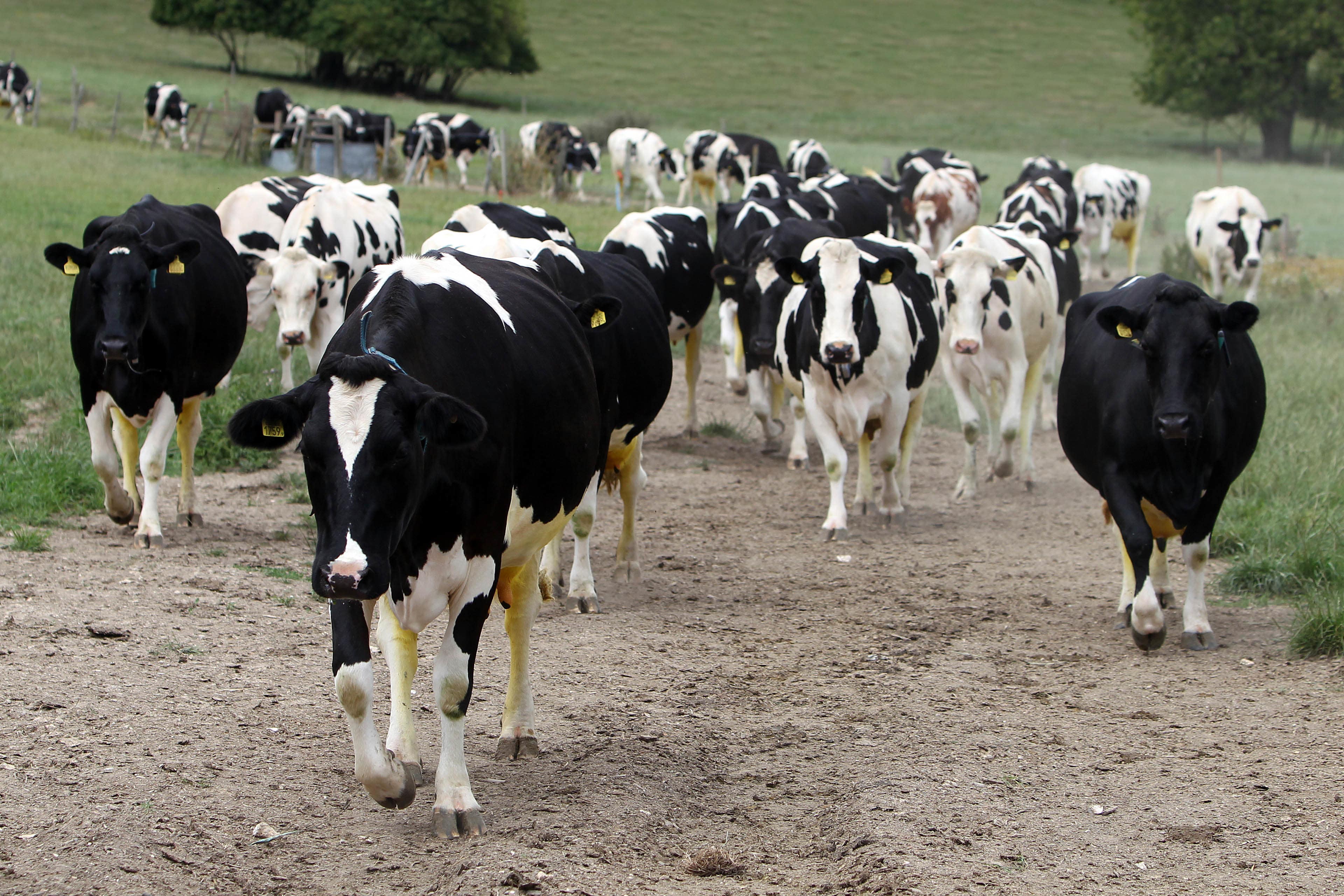Imports of cattle, pigs and sheep from Germany banned after foot-and-mouth found
The measures were announced on Tuesday in a bid to prevent the spread of the disease to the UK.

Your support helps us to tell the story
From reproductive rights to climate change to Big Tech, The Independent is on the ground when the story is developing. Whether it's investigating the financials of Elon Musk's pro-Trump PAC or producing our latest documentary, 'The A Word', which shines a light on the American women fighting for reproductive rights, we know how important it is to parse out the facts from the messaging.
At such a critical moment in US history, we need reporters on the ground. Your donation allows us to keep sending journalists to speak to both sides of the story.
The Independent is trusted by Americans across the entire political spectrum. And unlike many other quality news outlets, we choose not to lock Americans out of our reporting and analysis with paywalls. We believe quality journalism should be available to everyone, paid for by those who can afford it.
Your support makes all the difference.The Government has introduced a ban on pigs, cattle and sheep imports from Germany after a case of foot-and-mouth disease was confirmed in the country.
Ministers announced health certificates, which approve import requirements for animals, fresh meat and animal products, will no longer be issued to those susceptible to the disease.
The measures were announced on Tuesday in a bid to prevent the spread of the disease to the UK, where there are currently no known cases.
UK Chief Veterinary Officer Dr Christine Middlemiss has urged livestock keepers to remain vigilant in their biosecurity as well for the clinical signs of foot-and-mouth.
Food-and-mouth poses no risk to human or food safety but is a highly contagious disease of cattle, sheep, pigs and other cloven-hoofed animals.
I would urge livestock keepers to exercise the upmost vigilance for signs of disease, follow scrupulous biosecurity, and report any suspicion of disease immediately
Clinical signs vary depending on the animal but symptoms in cattle include sores and blisters on the feet, mouth and tongue as well as the potential for a fever, lameness and reluctance to feed.
For sheep and pigs, the disease tends to manifest with lameness and potential for blistering.
The disease can have a devastating financial and emotional impact on affected farmers, who face production losses like reduced milk yields and culling their livestock.
But it can also lead to wider economic impacts with the loss of access to foreign markets for animals, meat and milk for affected countries.
Dr Middlemiss said: “We remain in constant contact with German counterparts to understand the latest situation following their confirmation of a single case of foot-and-mouth disease.
“We have robust contingency plans in place to manage the risk of this disease to protect farmers and Britain’s food security, which means using all measures to limit the risk incursion and spread of this devastating disease.
“I would urge livestock keepers to exercise the upmost vigilance for signs of disease, follow scrupulous biosecurity, and report any suspicion of disease immediately to the Animal and Plant Health Agency.”
Farming minister Daniel Zeichner said: “The Government will do whatever it takes to protect our nation’s farmers from the risk posed by foot-and-mouth.
“That is why restrictions have immediately been brought in on animal products from Germany to prevent an outbreak, and we will not hesitate to add additional countries to the list if the disease spreads.
“We will continue to keep the situation under review, working closely with the German authorities.”
Ministers said foot-and-mouth is a legally notifiable disease, which means failure to report it to the Government is an offence.
The UK suffered major outbreaks of the disease in 2001 and 2007, leading to millions of pigs, cattle and sheep being slaughtered across the country and costing both the public and private sector billions.
The Government recently announced a £200 million investment in the UK’s main research and laboratory testing facilities at Weybridge to bolster protection against animal disease.